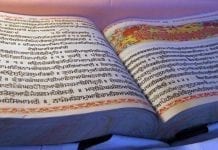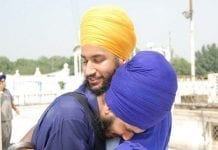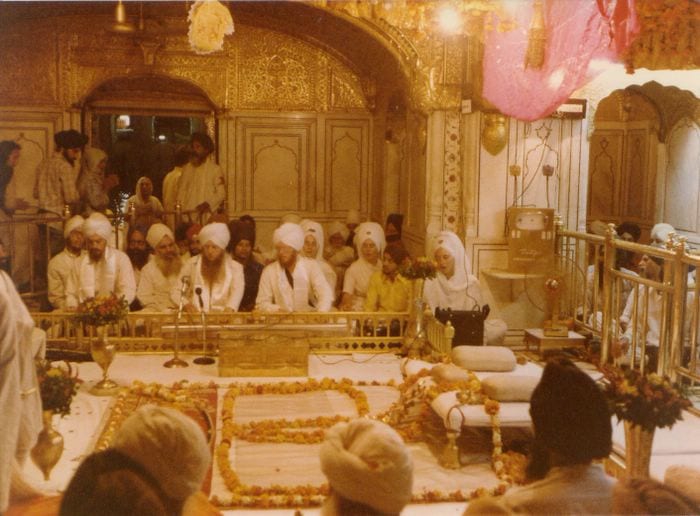ਕੈਰਉ (kairau)
Meaning: noun: The Kauravas, the sons of the King Dhritarashtra mentioned in the Hindu epic, Mahabharat.
Quote:
ਮੇਰੀ ਮੇਰੀ ਕੈਰਉ ਕਰਤੇ ਦੁਰਜੋਧਨ ਸੇ ਭਾਈ॥
ਬਾਰਹ ਜੋਜਨ ਛਤ੍ਰੁ ਚਲੈ ਥਾ ਦੇਹੀ ਗਿਰਝਨ ਖਾਈ॥
ਕੌਰਵ, ਜਿਨਾਂ ਦੇ ਦੁਰਜੋਧਨ ਜਿਹੇ ਬਲੀ ਭਰਾ ਸਨ, (ਸਾਰੀ ਮਲਕੀਅਤ) ਮੇਰੀ, (ਸਾਰੀ ਭੋਇਂ) ਮੇਰੀ (ਦਾ ਦਾਅਵਾ) ਕਰਦੇ ਸਨ। ਉਹਨਾਂ ਦਾ ਛਤਰ ਬਾਰਾਂ ਜੋਜਨ (੪੮ ਕੋਹ) ਤਕ ਝੁਲਦਾ ਸੀ, (ਪਰ ਮਰਨ ਮਗਰੋਂ) ਉਹਨਾਂ ਦੀ ਦੇਹੀ ਗਿਰਝਾਂ ਨੇ ਖਾਧੀ।
meree meree kairau karte durjodhan se bhaaee.
baarah jojan chhatra chalai thaa dehee girjhan khaaee.
The Kauravas, who had brave brothers like Duryodhan, used to proclaim, “This is mine! This is mine!” Their royal canopy flew up to sixty miles, (and yet after death) their bodies were eaten by vultures. -Bhagat Namdev, Guru Granth Sahib, 693
Message: Some may be mighty warriors, striking terror in the minds of adversaries; making themselves proud, haughty and full of ego; considering all others with disdain. But all will perish when the appointed time to perish comes and retribution time takes the toll.
A very pertinent example of the Kauravas is referenced in the quote. The Kauravas, said to be one hundred in number, were the sons of the King Dhritarashtra. Duryodhan was the eldest. Their rule was spread over miles and they claimed to own everything.
They became jealous of their cousins (Pandavas) and wanted to exterminate them. The story of the great war of Mahabharata is based on their rivalry. Eventually, they were killed and their bodies lay rotting on the battlefield with the vultures pecking at them.
There is no escape, for anyone, from the clutches of death. This reality should open our eyes to the inevitability of death. Our might and power should not lead us to waste our precious life that is meant to love and realise the all-pervading Divine.
Note: There is a word in English, wegotism, a blend of we + egotism, which refers to the habit of using “we” when referring to oneself.




